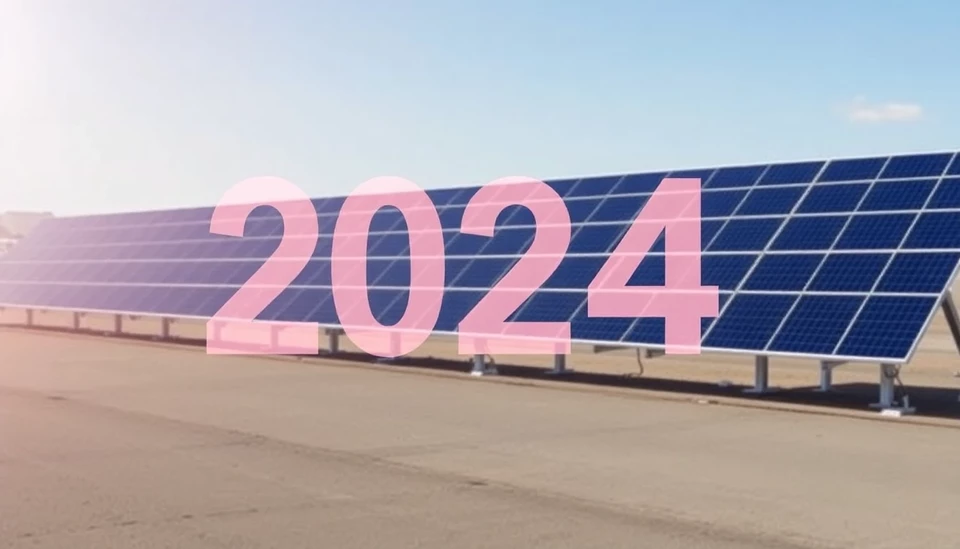
As we move into 2024, the environmental landscape is witnessing a significant transformation characterized by a dramatic shift towards sustainable energy solutions. The year is projected to be pivotal in the fight against climate change, chiefly through the rise of solar energy and electric vehicles (EVs), alongside a noteworthy decline in coal usage.
The latest reports indicate that renewable energy sources, particularly solar power, are on the cusp of overtaking fossil fuels in terms of global energy generation. Analysts forecast that solar energy production will witness significant growth, propelled by technological advancements and favorable government policies aimed at reducing carbon emissions. This trend not only highlights the increased investment in renewable energy but also suggests a promising future for ecological sustainability.
In tandem with the surge in solar energy, the market for electric vehicles is also experiencing an unprecedented upsurge. Increasing public demand, combined with dropping battery prices and enhanced charging infrastructure, are driving factors in the accelerated adoption of EVs. Manufacturers are racing to launch new models, providing consumers with a wider selection than ever before, which is likely to spur even greater EV market penetration in 2024. With global EV sales expected to reach record highs next year, it is clear that consumers are gravitating toward greener alternatives to gasoline-powered vehicles.
Perhaps one of the most significant elements contributing to this shift is the systematic decline of coal as a power source. Several nations are making concerted efforts to phase out coal mining and coal-fired power plants, seeking cleaner alternatives that do not contribute to the greenhouse gas emissions that are prompting climate change. The coal industry has been grappling with more stringent regulations and growing public pressure to transition towards greener energy sources. The result is a marked decrease in coal usage, presenting an opportunity for renewable energy sources to fill the gap.
Moreover, venture capital is increasingly flowing into climate-tech startups focused on carbon capture and renewable energy technologies. As investors recognize the potential for financial returns in sustainable practices, this influx of funding not only supports innovation but also encourages broader societal shifts towards embracing cleaner technologies.
Governments around the world are also elevating their climate commitments, with initiatives aimed at reducing emissions and promoting renewable energy. Policy measures, including tax incentives for solar installations and rebates for electric vehicle purchases, are becoming more common. These strategies are intended to establish a more sustainable energy economy and aid in meeting international climate goals.
Looking ahead, the convergence of these factors signifies a turning point in the global effort to combat climate change. The rapid adoption of solar energy and electric vehicles, coupled with a significant retreat from coal dependency, underlines a collective momentum towards sustainability. As investments in clean energy technologies rise and consumer awareness grows, 2024 stands as a beacon of hope for a cleaner and more sustainable future.
<>#> #ClimateChange #RenewableEnergy #SolarPower #ElectricVehicles #CleanEnergy #Sustainability #CoalPhaseout #GreenTechnology #EcoFriendlyInnovation #FutureOfTransportation #<
Author: Peter Collins




